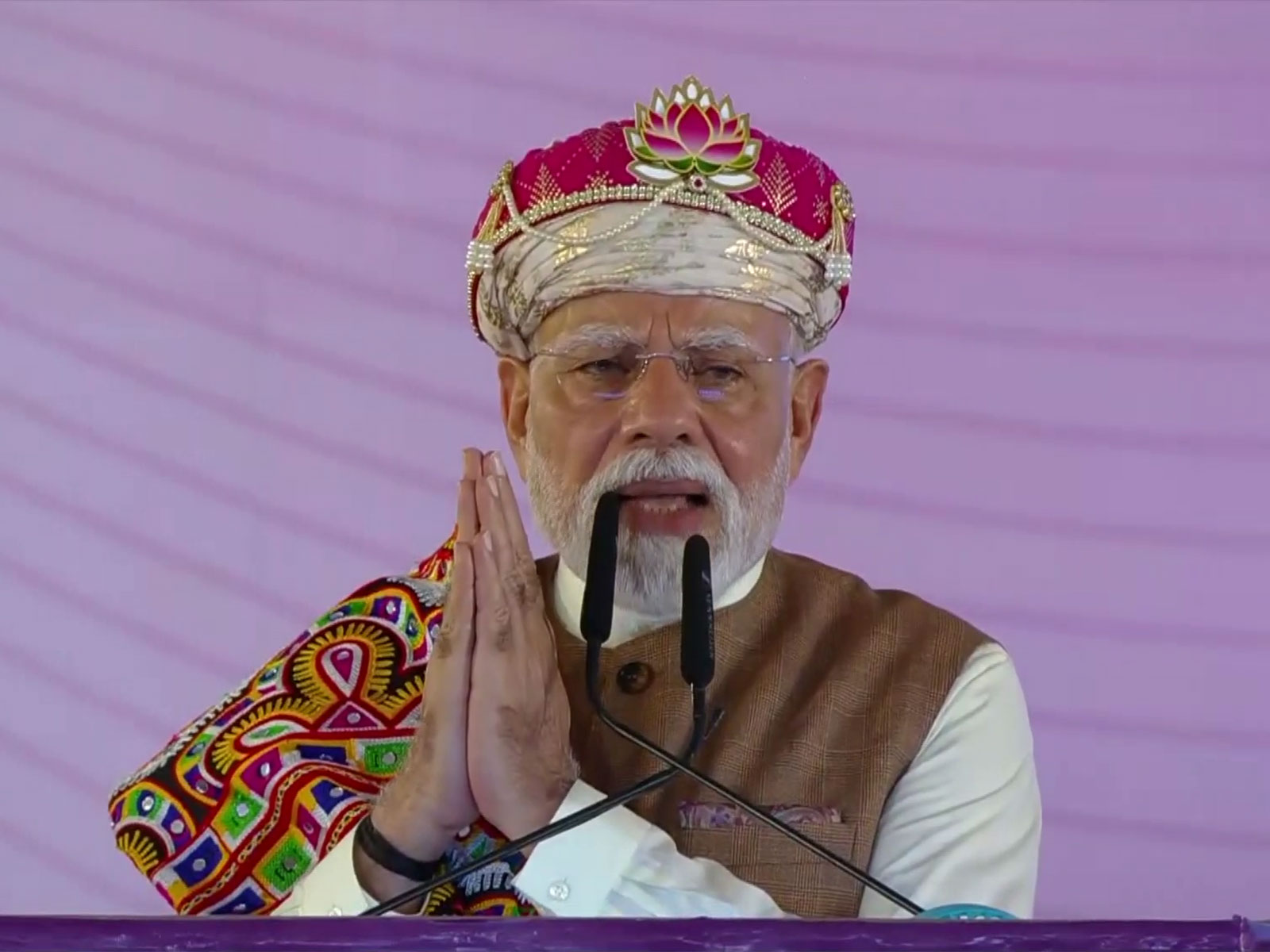PM Modi Launches Mega Development Projects in Dhar, Emphasizes Women & Tribal Welfare
The Prime Minister emphasized that the nation’s progress rests on four key pillars: Nari Shakti (women power), Yuva Shakti (youth power), farmers, and the poor.

- Country:
- India
Prime Minister Shri Narendra Modi laid the foundation stone and inaugurated a series of development projects in Dhar, Madhya Pradesh, on the occasion of Vishwakarma Jayanti, marking a historic day of cultural pride, industrial progress, and social empowerment. The event drew widespread attention, not only for the announcement of major initiatives but also for the Prime Minister’s powerful address connecting India’s heritage with its vision of a developed future.
Reverence for Heritage and Cultural Legacy
Beginning his speech, the Prime Minister bowed before Goddess Vagdevi, the revered mother of Dhar Bhojshala, and offered salutations to Lord Vishwakarma, the divine architect and symbol of skill. He reminded the gathering of the bravery of Maharaja Bhoj and the sacrifice of Maharshi Dadhichi, which continue to inspire the nation’s resilience. Recalling Hyderabad’s liberation on 17th September under the leadership of Sardar Vallabhbhai Patel, Shri Modi reaffirmed that this day stands as a symbol of national unity, courage, and the unbreakable resolve to defend the honour of Mother India.
He reiterated India’s robust security posture, highlighting the success of Operation Sindoor, the dismantling of terror hideouts, and the nation’s firm response to cross-border threats. He asserted that today’s India is fearless, confident, and decisive in protecting its sovereignty.
Strengthening the Four Pillars of Viksit Bharat
The Prime Minister emphasized that the nation’s progress rests on four key pillars: Nari Shakti (women power), Yuva Shakti (youth power), farmers, and the poor. The day’s events in Dhar, he said, had significantly reinforced these pillars.
-
Women’s Health and Empowerment: Launching the ‘Swasth Nari, Sashakt Parivar’ campaign, Shri Modi underscored the role of women’s health in family and societal wellbeing. The campaign, running till 2nd October, will provide free screenings and medicines for diseases such as diabetes, anaemia, tuberculosis, and cancer. Those requiring further treatment will be supported through Ayushman Bharat cards, ensuring no woman is left behind.
-
National Nutrition Mission: Commencing the eighth National Nutrition Month, the Prime Minister highlighted efforts to lower maternal and infant mortality. The Pradhan Mantri Matru Vandana Yojana has already benefited 4.5 crore mothers with financial support exceeding ₹19,000 crore. On this day alone, ₹450 crore was transferred to over 15 lakh women, strengthening maternal and child health.
-
Combating Sickle Cell Anaemia: From Madhya Pradesh’s tribal regions, Shri Modi drew attention to the National Mission against Sickle Cell Anaemia, launched in 2023. He announced the distribution of the one croreth screening card, adding that over five crore people have been screened nationwide, saving countless lives in vulnerable communities.
Boost to Textile and Industrial Growth
On Vishwakarma Jayanti, the Prime Minister unveiled India’s largest integrated textile park—the PM MITRA Park in Dhar—spanning 1,300 acres. With more than 80 industrial units already allotted, the park is set to generate over three lakh employment opportunities, especially for youth and women.
The park will streamline the entire textile value chain—from farm to fibre, fibre to factory, factory to fashion, and fashion to foreign—enhancing India’s competitiveness in global markets. Shri Modi emphasized that the park would reduce costs, ensure quality control, and give a new identity to Madhya Pradesh’s Maheshwari textiles, continuing the legacy of Devi Ahilyabai Holkar.
Vishwakarma Yojana and Swadeshi Resolve
Addressing artisans and craftsmen, the Prime Minister highlighted the success of the PM Vishwakarma Yojana, under which over 30 lakh beneficiaries have gained training, digital access, and modern equipment. Loans worth ₹4,000 crore have already been disbursed, empowering traditional workers in carpentry, metalwork, pottery, and weaving.
Shri Modi called on citizens to reaffirm their commitment to Swadeshi during the festive season, urging people to buy Indian-made products—from toys and home décor to electronics and textiles. He emphasized that every rupee spent on Swadeshi goods strengthens the economy, supports welfare schemes, and creates jobs for fellow Indians.
Commitment to Poor and Women-Centric Welfare
The Prime Minister reiterated that service to the poor is the guiding principle of his governance. He cited landmark initiatives such as the Swachh Bharat Abhiyan, Ujjwala Yojana, Jal Jeevan Mission, Ayushman Bharat, and the PM Garib Kalyan Anna Yojana, which continue to ease the hardships of women and safeguard the dignity of the underprivileged.
He celebrated the emergence of ‘Lakhpati Didis’—women who, empowered by self-help groups and financial support under the Mudra Yojana, have built successful businesses. Nearly two crore women have already crossed this milestone, with the goal set at three crore. Initiatives like Drone Didis and Bank Sakhis are further integrating women into the rural economy.
A Vision of Unity and Prosperity
The Prime Minister concluded his address by recalling the contribution of Kushabhau Thakre, a son of Dhar who embodied the principle of “Nation First.” He urged every citizen to follow this ideal and dedicate every moment of life to strengthening India.
Extending festive greetings, Shri Modi reminded the gathering:
“Say with pride: this is Swadeshi.”
The event was attended by Governor Mangubhai Patel, Chief Minister Mohan Yadav, and Union Minister Savitri Thakur, among other dignitaries. The Dhar programme symbolized a unique blend of cultural reverence, social welfare, women’s empowerment, and industrial progress, setting a powerful precedent for India’s march toward becoming a Viksit Bharat by 2047.








